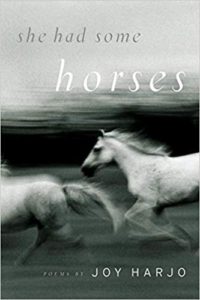Enrique Salmón: Iwígara: American Indian Ethnobotanical Traditions and Science
January 9, 2022 by David
Filed under Non-Fiction, WritersCast
 Iwígara: American Indian Ethnobotanical Traditions and Science, The Kinship of Plants and People — Enrique Salmón –Timber Press — 978-1-60469-880-0 — Hardcover – $34.95 – ebook and audio book versions available at lower prices
Iwígara: American Indian Ethnobotanical Traditions and Science, The Kinship of Plants and People — Enrique Salmón –Timber Press — 978-1-60469-880-0 — Hardcover – $34.95 – ebook and audio book versions available at lower prices
This is a truly incredible and hugely inspiring book for me. Enrique Salmón, a member of the Raramuri tribe from Mexico, has spent a lifetime learning and studying the medicinal and cultural properties of North American plants. He now teaches at California State University-East Bay in Hayward, California. His work may place him in academia, but he is fully engaged in the natural world.
Salmon begins his work with the deeply held knowledge that all life-forms are interconnected and share the same breath, which is called Iwígara in the Raramuri tribe.
In this book, Salmón presents us with eighty of the most important plants used by North American indigenous peoples. Of course, plants have always been used as food and medicine by indigenous peoples. What is important knowledge for those who are interested in engaging with a plant centric life are the passed down information about identification and harvest, the nature and applications of plants for food and medicine, and to understand how they have been central to traditional stories and myths for the disparate cultures across this continent.
Salmón honors the traditions and practices of so many different tribes here, and helps us understand the variation across different biomes and cultures of the people who live in them. Some of us learn deeply in a specific place across long periods of time, while others may trade breadth for depth. Native peoples are among the former, but most modern people fall into the latter category. A book like this one helps bridge the two different approaches to knowledge. Salmón recognizes that tension, and manages it well here. He understands that one cannot live in deep connection to the natural world without choosing a place in which to live. But readers need to know where to begin, and this book can be an introduction for anyone who wants to begin their own journey of learning and knowledge about plants, healing and cultural traditions.
I should mention also that the book is beautifully designed and includes many excellent photographs and illustrations, most in color. It is excellent work, combining narrative with references suited to beginners and experienced naturalists alike.
Enrique is also the author of Eating the Landscape: American Indian Stories of Food, Identity, and Resilience (2012).
I was honored to have the opportunity to speak with Enrique Salmón for Writerscast about his work, and hope you will enjoy listening to a truly knowledgeable plant practitioner.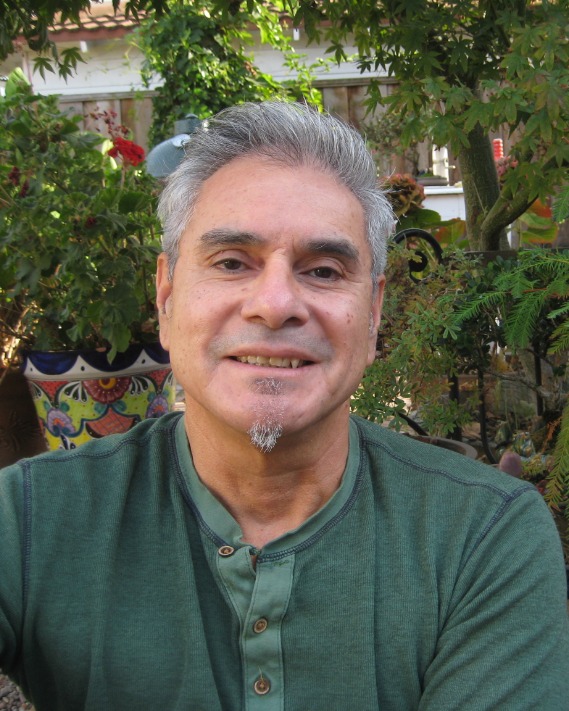
Purchase Iwígara from Bookshop.org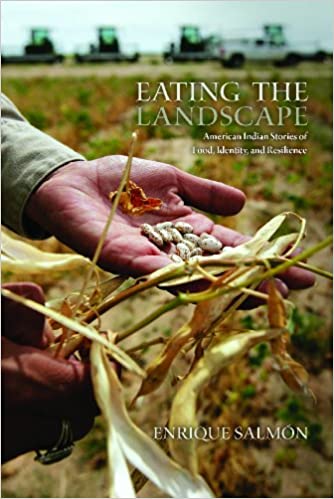
Podcast: Play in new window | Download
Crooked Hallelujah: Kelli Jo Ford
July 20, 2020 by David
Filed under Fiction, WritersCast
 Crooked Hallelujah – Kelli Jo Ford – 978-0-8021-4912-1 – Grove Press – Hardcover – 304 pages – July 14, 2020 – $26.00 – ebook versions available at lower prices.
Crooked Hallelujah – Kelli Jo Ford – 978-0-8021-4912-1 – Grove Press – Hardcover – 304 pages – July 14, 2020 – $26.00 – ebook versions available at lower prices.
Kelli Jo Ford’s novel is a deeply rewarding read. Comparisons to the work of Louise Erdrich are inevitable and unavoidable (and Kelli Jo mentioned Louise in our conversation as one of her most important influences.) This is a novel of relationships and family told through the voices of four generations of Cherokee women and to a lesser extent, the men who come in and out of their lives. The narrative weaves together strands of familial cloth into what emerges as a beautiful and compelling pattern that we experience fully as the story is told.
At the outset of the book, we are in 1974 in the Cherokee Nation, eastern Oklahoma, where fifteen-year-old Justine is growing up in a family dominated by women – her mother, Lula, and her mother’s mother, Granny. We follow Justine, and her daughter, Reney, through a series of challenges in Oklahoma and Texas and back to Oklahoma, where family and roots call out to her.
Kelli Jo Ford is a fine writer, and manages her characters and their stories well. Her intergenerational story is complicated, and the multiple narrative voices take some concentration to follow, but her writing is warm and deft, and we are rewarded in the end by the beauty and depth of her characters and their lives. This family of strong Cherokee women continually face challenges with strength and wisdom. They make the necessary sacrifices for the people in their lives and go on living despite all the difficulties they face. They don’t always get along – these women are real people, not caricatures. They do not always succeed in understanding each other or overcoming the difficulties and challenges they face. There are conflicts over religion and individuality. But these women are bound by blood, heart, and a deeply felt love that carries them forward despite all. I came away from this book with an appreciation for the strength and perceptiveness of Cherokee women.
Kelli Jo Ford is a citizen of the Cherokee Nation of Oklahoma. She is the recipient of numerous awards, a National Artist Fellowship by the Native Arts & Cultures Foundation, and a Dobie Paisano Fellowship. Her fiction has appeared in the Paris Review, Virginia Quarterly Review, Missouri Review, and the anthology Forty Stories: New Writing published by Harper in 2012. She now lives in Virginia with her husband, poet Scott Weaver.
My conversation with Kelli Jo was her first interview about Crooked Hallelujah. She is a new writer many of us will want to follow in the years to come.
Author website here.
Support local business. Buy the book from R.J. Julia Booksellers.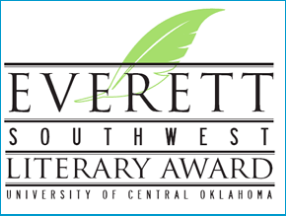
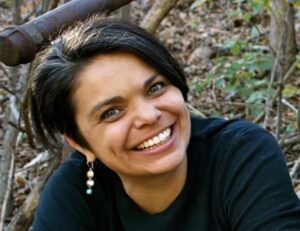
Podcast: Play in new window | Download
Joy Harjo has been named U.S. Poet Laureate
 Congratulations to Muscogee Creek Nation poet Joy Harjo who has been appointed the Poet Laureate for the United States, succeeding Tracy K. Smith. Joy is a poet, writer and musician whose work has inspired for many years. She is fearless in her work, unflinching in her approach to language and the worlds of spirits and of humans. Her many books include Conflict Resolution for Holy Beings, How We Became Human, A Map to the Next World, and the ever-gorgeous collection, She Had Some Horses. I interviewed Joy about her memoir Crazy Brave in 2016, which you can find on Writerscast here.
Congratulations to Muscogee Creek Nation poet Joy Harjo who has been appointed the Poet Laureate for the United States, succeeding Tracy K. Smith. Joy is a poet, writer and musician whose work has inspired for many years. She is fearless in her work, unflinching in her approach to language and the worlds of spirits and of humans. Her many books include Conflict Resolution for Holy Beings, How We Became Human, A Map to the Next World, and the ever-gorgeous collection, She Had Some Horses. I interviewed Joy about her memoir Crazy Brave in 2016, which you can find on Writerscast here.
“It’s such an honoring for Native people in this country, when we’ve been so disappeared and disregarded,” Harjo says. “And yet we’re the root cultures, over 500-something tribes and I don’t know how many at first contact. But it’s quite an honor … I bear that honor on behalf of the people and my ancestors. So that’s really exciting for me.”
From Conflict Resolution for Holy Beings:
1. SET CONFLICT RESOLUTION GROUND RULES:
Recognize whose lands these are on which we stand.
Ask the deer, turtle, and the crane.
Make sure the spirits of these lands are respected and treated with goodwill.
The land is a being who remembers everything.
You will have to answer to your children, and their children, and theirs—
The red shimmer of remembering will compel you up the night to walk the perimeter of truth for understanding.
As I brushed my hair over the hotel sink to get ready I heard:
By listening we will understand who we are in this holy realm of words.
Do not parade, pleased with yourself.
You must speak in the language of justice.
Colin G. Calloway: The Victory with No Name
January 2, 2017 by David
Filed under Non-Fiction, WritersCast
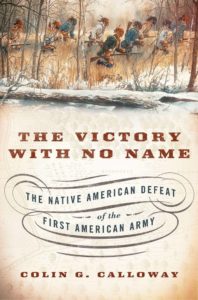 The Victory With No Name: The Native American Defeat of the First American Army – Oxford University Press – paperback – 214 pages -978-0190614454 – $16.95 (ebook versions available at lower prices)
The Victory With No Name: The Native American Defeat of the First American Army – Oxford University Press – paperback – 214 pages -978-0190614454 – $16.95 (ebook versions available at lower prices)
I think it’s safe to say that most Americans have not given much thought to the very early history of the United States. During the first decades after the country was formed, there was much concern about the survival of the new nation. The British were still well established in the north, the Spanish were in the south and southwest, and large numbers of Indians inhabited the vast area to the west. Pressure was being exerted on the federal government to open these western lands to settlement, putting the US on a collision course with the natives who lived there.
This area was known as the Northwest Territory – comprising what are now the states of Ohio, Indiana, Illinois, Michigan, Wisconsin and parts of Minnesota. Almost all Americans dismissed the land claims of the Native Americans. These tribes they saw simply as impediment to American growth. While some American leaders preferred to purchase the Indians’ land, the need for the government to pay its debts by selling (Indian owned) land overwhelmed all other concerns, and led ultimately to a war of extermination with the tribes.
Historian Colin G. Calloway is exceptionally perceptive and knowledgeable about the early history of the United States of America. This short, well written book focuses on a single unnamed battle that took place in late 1791 in what is now Fort Wayne, Indiana. In this period, before there was a standing army, President George Washington ordered Arthur St. Clair, the governor of the Northwest Territory, to direct a military campaign aimed at defeating the tribes that had refused to accept the unfair land deals the United States had proposed to them.
Calloway shows that the Native Americans were well organized and well-led, both politically and militarily. This surprised St. Clair as much as it may surprise us today. The American Indians were led by Little Turtle of the Miamis, Blue Jacket of the Shawnees and Buckongahelas of the Delawares (Lenape). Their war party numbered more than one thousand warriors, and included a large number of Potawatomis from eastern Michigan, a broad confederacy presaging similar Indian efforts to come in later years.
As Calloway points out: “Indians fielding a multinational army, executing a carefully coordinated battle plan worked out by their chiefs, and winning a pitched battle—all things Indians were not supposed to be capable of doing—routed the largest force the United States had fielded on the frontier.” It’s useful to note that the American army was poorly organized, included a large number of ill-trained militia, and was also victimized by crooked suppliers, starting a longstanding American tradition of private gain by military purveyors we recognize all too well today.
Unfortunately for the Native Americans, their victory was short lived. The stunning American defeat led directly to a number of changes in the way the new government operated. The House of Representatives initiated the first investigation of the executive branch, Congress established a standing army and gave the president authority to wage war. A liquor tax was created to finance the Army (which led to the Whiskey Rebellion that ironically, President Washington used the tax-financed militia to put down). The Indian confederacy did not last, and in 1794, General “Mad Anthony” Wayne built Fort Recovery and defeated another Indian war party at the Battle of Fallen Timbers, ultimately bringing an end to Northwest Territory Indian resistance and opening the way for the first stage of westward growth of the new American nation.
There is so much interesting history that relates directly to the story told in this book. It’s a compelling read for anyone interested in the early period of the American republic. My conversation with Colin Calloway reflects the stirring nature of his book, and the breadth of his knowledge. This book is an important American story, well told, and I highly recommend it.
Colin Calloway is the author of a number of excellent works, including one of my personal favorites, One Vast Winter Count: The Native American West before Lewis and Clark. He is the John Kimball, Jr. 1943 Professor of History and Professor of Native American Studies at Dartmouth, where he has taught since 1990. He received his Ph.D. from the University of Leeds in England.
Length note – this interview is slightly longer than average at about 35 minutes.

Podcast: Play in new window | Download

